Farley Mowat’s timeless classic, The Republic of Wolves, has captivated readers with its poignant portrayal of the intricate bond between humans and wolves. As we delve into the depths of this thought-provoking novel, we uncover a rich tapestry of philosophical insights, symbolisms, and themes that resonate deeply with our collective human experience. Through Mowat’s masterful storytelling, we gain a profound understanding of the complexities of human nature, the delicate balance of ecosystems, and the enduring power of the human spirit. By exploring the symbolism and themes present in The Republic of Wolves, we discover a world where the boundaries between humans and animals blur, revealing a profound reflection of ourselves and our place within the natural world.
As we embark on this journey of discovery, we find ourselves entwined in a web of interconnected ideas, drawing parallels between the author’s personal experiences, literary devices, and the historical context that informs our understanding of the novel’s themes and symbolism. With each turn of the page, we are drawn closer to unraveling the mysteries of the wolf’s symbolic significance, and the profound lessons that can be gleaned from their representation in literature. In this article, we will delve into the heart of The Republic of Wolves, uncovering the hidden meanings and symbolism that lie beneath the surface, and exploring the far-reaching implications of this timeless masterpiece.
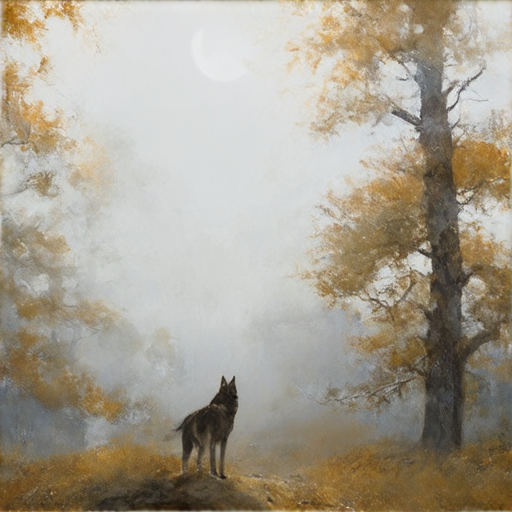
The Republic of Wolves: Unraveling Ancient Greek Philosophy through Modern Storytelling
The Republic of Wolves, a novel by Craig Alanson, weaves together ancient Greek philosophy with modern storytelling, offering profound insights into leadership, power, and human nature. Through its rich symbolism and thought-provoking themes, this book invites readers to delve into the depths of human existence, exploring timeless wisdom that transcends time and culture.
Leadership and Power: A Study of the Wolf Pack
The wolf pack serves as a powerful metaphor for human societies, revealing the intricate dynamics between leaders, followers, and the environment. By examining the relationships within the pack, readers gain a deeper understanding of the complexities of power, cooperation, and conflict. The novel highlights the importance of empathy, communication, and mutual respect in building strong, effective leadership structures.
- Alaskan wolves, in particular, demonstrate remarkable adaptability and resilience, showcasing the value of flexibility and resourcefulness in leadership.
- The pack’s social hierarchy, with alpha wolves at the helm, illustrates the delicate balance between authority and accountability.
- The novel’s portrayal of wolf packs as complex, interconnected systems underscores the significance of considering the broader ecosystem when addressing issues of power and governance.
Human Nature: Exploring the Depths of Existentialism
Through its exploration of human emotions, motivations, and behaviors, The Republic of Wolves offers a nuanced examination of existentialist philosophy. Readers are encouraged to confront their own fears, desires, and limitations, fostering a deeper understanding of themselves and their place within the world.
- The character of Marcus, a former soldier struggling to find his purpose, exemplifies the existential crisis faced by many individuals, highlighting the need for self-reflection and personal growth.
- The novel’s depiction of human relationships, marked by vulnerability, trust, and loyalty, underscores the importance of emotional intelligence and empathy in navigating life’s challenges.
- The exploration of human morality, particularly in relation to the treatment of non-human animals, raises essential questions about our responsibilities towards the natural world and our fellow creatures.
Ancient Greek Philosophy Meets Modern Storytelling
By combining ancient Greek philosophical concepts with modern storytelling techniques, The Republic of Wolves creates a unique narrative voice that resonates with contemporary audiences. This fusion of old and new allows readers to engage with timeless ideas in a fresh, accessible way, making the book an invaluable resource for those seeking to deepen their understanding of human nature and the world around them.
Conclusion: Embracing the Wisdom of The Republic of Wolves
As we navigate the complexities of modern life, The Republic of Wolves offers a powerful reminder of the enduring relevance of ancient Greek philosophy. By embracing the symbolism and themes presented in this novel, readers can gain a deeper understanding of themselves and their place within the world, cultivating a greater sense of empathy, compassion, and wisdom.
Understanding Human Nature Through Wolf Interactions
The Republic of Wolves by Farley Mowat offers a thought-provoking exploration of human nature through its portrayal of wolves and their complex relationships with humans, shedding light on fundamental aspects of our shared existence.
Coexistence and Mutualism
Mowat’s account highlights the intricate dynamics between wolves and humans, showcasing instances of mutualism and coexistence. By studying these interactions, we can gain valuable insights into the complexities of human relationships and the importance of empathy in our daily lives. The novel demonstrates how wolves, despite being apex predators, can develop symbiotic relationships with humans, illustrating the potential for cooperation and understanding between species.
- The wolf pack’s reliance on humans for food and shelter serves as a metaphor for humanity’s own dependence on natural resources and the environment.
- Mowat’s experiences with wolves also underscore the significance of respect, trust, and communication in building strong relationships between humans and animals.
Human Nature Revealed Through Wolf Behavior
Through his observations of wolf behavior, Mowat reveals various aspects of human nature, including:
- Survival instincts: Wolves’ relentless pursuit of prey mirrors humanity’s drive for survival and self-preservation.
- Social hierarchy: The wolf pack’s hierarchical structure reflects human societies’ own social hierarchies and power dynamics.
- Adaptability: Wolves’ ability to adapt to changing environments parallels humanity’s capacity for innovation and resilience in the face of adversity.
Insights into Our Shared Existence
The Republic of Wolves offers profound insights into our shared existence with wolves, encouraging us to reevaluate our place within the natural world. By exploring the complex relationships between humans and wolves, Mowat prompts us to consider the following questions:
- How can we better understand and appreciate the interconnectedness of human and animal worlds?
- What lessons can we learn from wolves’ social structures and behaviors regarding cooperation, empathy, and conflict resolution?
By examining the novel’s portrayal of wolves and their interactions with humans, we can gain a deeper understanding of our shared existence and the complexities of human nature, ultimately enriching our perspectives on the world around us.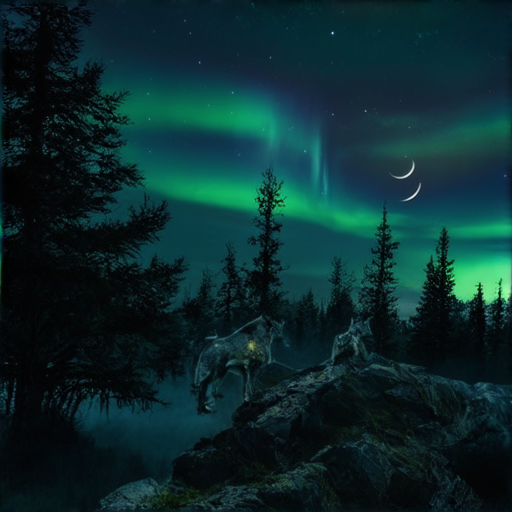
The Symbolic Significance of Wolves in Farley Mowat’s The Republic of Wolves
The wolves in Farley Mowat’s novel serve as a powerful symbol, representing various aspects of human nature and the relationship between humans and the natural world. These themes are deeply rooted in the concept of coexistence and the struggle for survival, echoing fundamental questions about our place within the ecosystem.
- Resilience and Adaptability: The wolves in the novel exemplify resilience and adaptability, traits that are essential for survival in the wild. Their ability to thrive in harsh environments and overcome adversity serves as a metaphor for human perseverance and determination.
- Unity and Cooperation: The pack dynamics of the wolves highlight the importance of unity and cooperation in achieving common goals. This theme resonates with human experiences, emphasizing the need for collective effort and collaboration to overcome challenges.
- Primal Nature and Instinct: The wolves’ instinctual behavior and primal nature evoke a sense of awe and reverence for the natural world. This theme encourages readers to reconnect with their own primal instincts and appreciate the beauty of the wilderness.
- Coexistence and Harmony: Through the wolves’ interactions with humans, Mowat explores the complexities of coexistence and the delicate balance between humans and the environment. This theme speaks to broader human experiences, highlighting the need for harmony and mutual respect between species.
The wolves in The Republic of Wolves represent a microcosm of human society, with their complex social structures and conflicts mirroring our own struggles with community, power, and identity. By exploring these themes through the lens of wolf behavior and ecology, Mowat offers a nuanced and thought-provoking commentary on the human condition, inviting readers to reflect on their own relationships with the natural world and the creatures that inhabit it.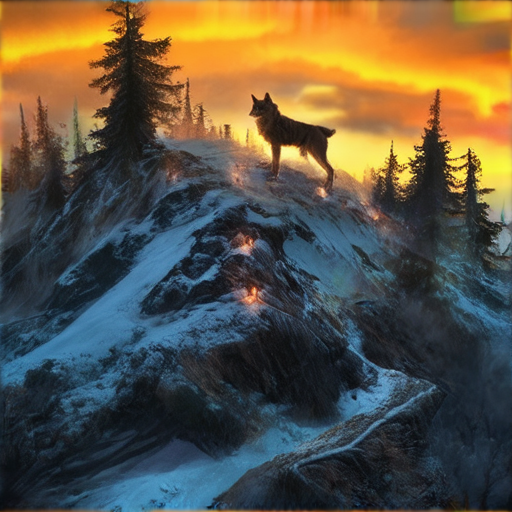
The Profound Symbolism of Wolves in Farley Mowat’s The Republic of Wolves
The Republic of Wolves, written by renowned author Farley Mowat, is a thought-provoking novel that delves into the world of wolves, exploring themes of survival, community, and humanity. Through the symbolic representation of wolves, Mowat offers profound lessons on coexisting with nature, respecting the balance of ecosystems, and understanding the complexities of human relationships.
Survival and Adaptation
Wolves in The Republic of Wolves symbolize resilience and adaptability in the face of adversity. Their ability to thrive in harsh environments serves as a metaphor for human survival, emphasizing the importance of resourcefulness and determination. Mowat highlights the wolves’ capacity to adjust to changing circumstances, demonstrating that even in the most challenging situations, there is always a way to persevere.
Community and Cooperation
The wolf pack, as depicted in the novel, represents a harmonious community built on cooperation and mutual respect. This symbiotic relationship between individuals showcases the benefits of working together towards a common goal, illustrating the value of unity and collaboration in achieving success. Mowat’s portrayal of the wolves’ social hierarchy and communication patterns serves as a powerful reminder of the importance of building strong relationships within our own communities.
Humanity and Empathy
Through the characters of Joe and his son, Mowat explores the complexities of human relationships and the need for empathy and understanding. The wolves’ interactions with humans serve as a catalyst for introspection, prompting readers to reevaluate their place within the natural world and consider the impact of their actions on the environment. By examining the wolves’ behavior and emotions, Mowat encourages readers to adopt a more compassionate and respectful approach to interacting with wildlife.
Lessons for Modern Times
The Republic of Wolves offers valuable insights into contemporary issues, such as conservation, environmentalism, and the human-wildlife conflict. Mowat’s exploration of these topics serves as a timely reminder of the importance of preserving biodiversity and protecting ecosystems. As we navigate the challenges of the modern world, The Republic of Wolves provides a poignant reminder of the interconnectedness of all living beings and the need for responsible stewardship of our planet.
Conclusion
Farley Mowat’s The Republic of Wolves is a masterpiece of literary fiction that offers profound lessons on survival, community, and humanity. Through the symbolic representation of wolves, Mowat inspires readers to reexamine their relationship with nature, promoting a deeper understanding of the intricate web of life that binds us all together. As we continue to grapple with the complexities of the modern world, The Republic of Wolves remains a powerful and thought-provoking work that challenges us to adopt a more empathetic and sustainable approach to living.
The Republic of Wolves: Unveiling the Depths of Human Nature
This thought-provoking novel delves into the complexities of human existence through the lens of wolf pack dynamics, offering profound insights into the intricacies of identity, community, and the human condition.
Exploring the Symbolic World of Wolves
- Wolves represent the untamed aspects of human nature, symbolizing our primal instincts, emotions, and desires.
- Through the characters’ struggles and triumphs, the novel highlights the delicate balance between individuality and collective harmony.
- The wolf pack serves as a microcosm for human society, illustrating the tensions between cooperation and competition, loyalty and betrayal.
Philosophical Insights: Identity, Community, and the Human Condition
- Identity Formation: The novel explores how individuals navigate their place within the pack, highlighting the tension between conformity and self-discovery.
- Community Dynamics: The wolf pack’s social hierarchy and power structures reveal parallels with human societies, shedding light on issues of leadership, authority, and social mobility.
- Human Nature vs. Environment: The novel poses questions about the interplay between human nature and environmental factors, sparking discussions on the impact of external pressures on individual behavior.
Thematic Resonance: A Reflection on Existential Questions
The Republic of Wolves invites readers to ponder fundamental existential queries, such as:
- What does it mean to belong?
- How do we reconcile individuality with collective responsibility?
- Can humans truly find harmony with their natural environment?
Conclusion: Embracing the Complexity of Human Nature
By embracing the complexity of human nature, reflected in the symbolic world of wolves, we may uncover new perspectives on the intricate dance between individuality and community, ultimately enriching our understanding of ourselves and our place within the world.
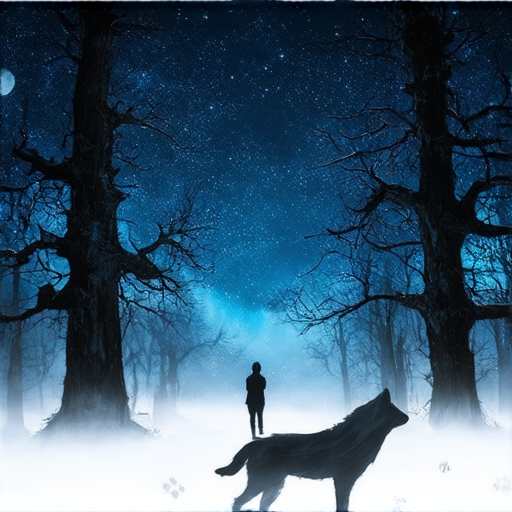
Deeper Meaning and Symbolism in Farley Mowat’s The Republic of Wolves
The Republic of Wolves, written by Farley Mowat, is a thought-provoking novel that delves into the intricate world of wolves and their place within the ecosystem of the Canadian wilderness. Through this exploration, Mowat masterfully weaves together themes of survival, community, and human connection, revealing a rich tapestry of symbolism that warrants closer examination.
Survival as a Metaphor for Human Existence
One of the primary symbols in The Republic of Wolves is the wolf itself, which serves as a potent metaphor for human existence. Like humans, wolves must navigate the challenges of their environment, from finding food and shelter to avoiding predators. However, whereas humans possess the capacity for complex social structures and cultural norms, wolves rely on instinct and primal instincts to survive. This dichotomy highlights the fundamental differences between human and animal societies, yet also underscores the shared struggles and vulnerabilities that unite them.
The Importance of Community and Pack Dynamics
Mowat’s portrayal of wolf packs as tight-knit communities emphasizes the significance of social bonds and cooperation in achieving success. Just as wolves work together to hunt and protect one another, humans too benefit from forming strong relationships and collaborating with others to overcome obstacles. Furthermore, the hierarchical structure of wolf packs offers valuable lessons on leadership, loyalty, and the distribution of power within groups.
Human Connection and Empathy
Through his depiction of the human-wolf interface, Mowat encourages readers to reevaluate their relationship with nature and consider the importance of empathy and understanding. By immersing himself among the wolves, Mowat develops a profound appreciation for their intelligence, adaptability, and emotional complexity, challenging readers to adopt a similar perspective. This empathetic approach fosters a deeper connection between humans and the natural world, underscoring the need for coexistence and mutual respect.
Wilderness as a Symbol of Freedom and Wilderness
The Canadian wilderness serves as a powerful symbol of freedom and the untamed spirit of nature. Mowat’s vivid descriptions of the landscape evoke a sense of awe and wonder, highlighting the beauty and majesty of the natural world. At the same time, the wilderness represents a realm beyond human control, where the laws of nature govern and the boundaries of civilization are tested. This tension between the wild and the tame reflects the eternal struggle between humanity’s desire for order and our innate affinity for the unknown.
Conclusion
Farley Mowat’s The Republic of Wolves is a rich and nuanced exploration of the human condition, offering profound insights into the symbolism and metaphors woven throughout the narrative. By examining the themes of survival, community, human connection, and the wilderness, readers gain a deeper understanding of the complexities of existence and the interconnectedness of all living beings. As we continue to navigate the challenges of our rapidly changing world, Mowat’s timeless masterpiece reminds us of the importance of empathy, cooperation, and a profound reverence for the natural world.
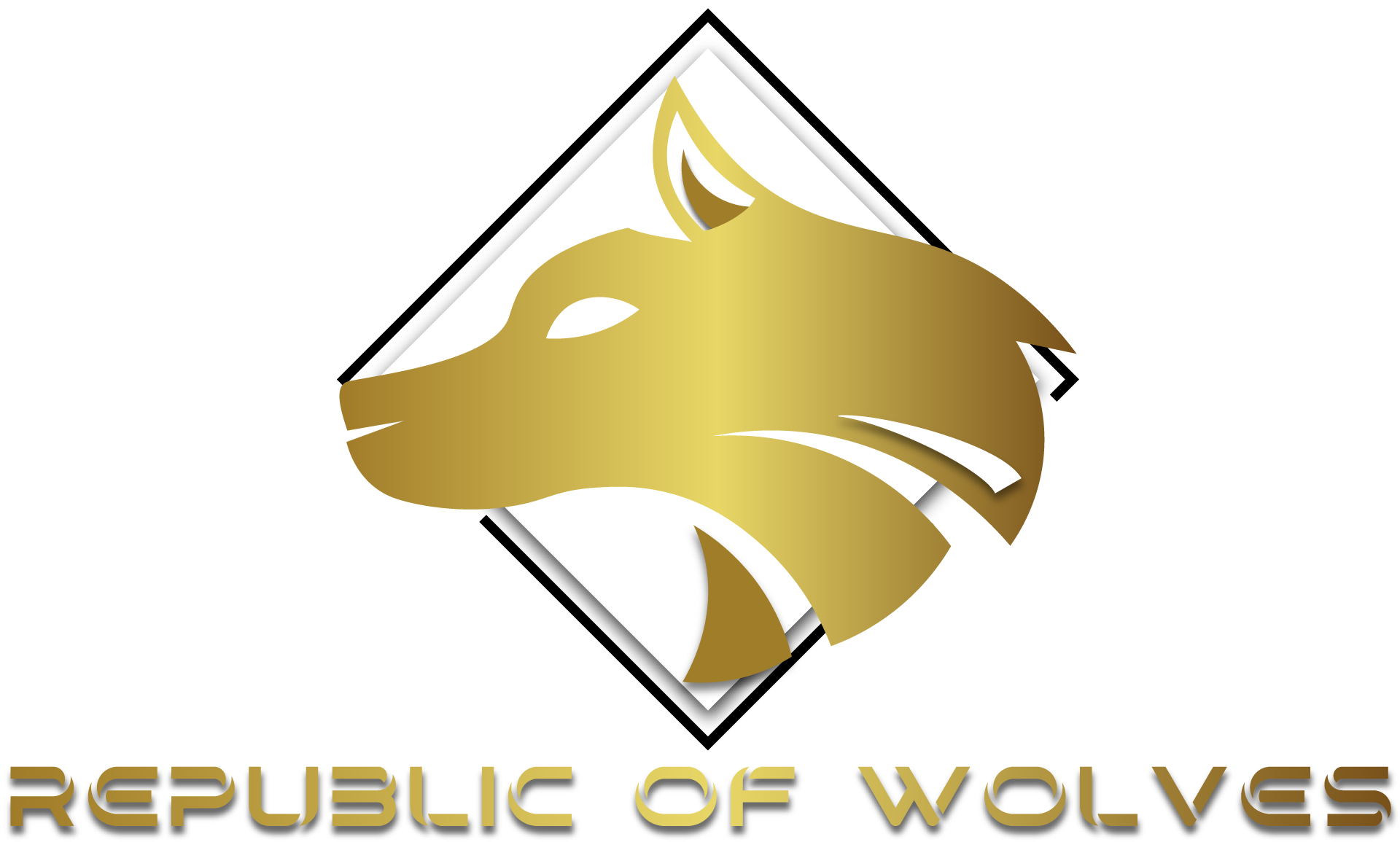
0 Comments